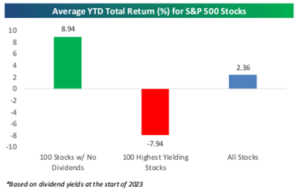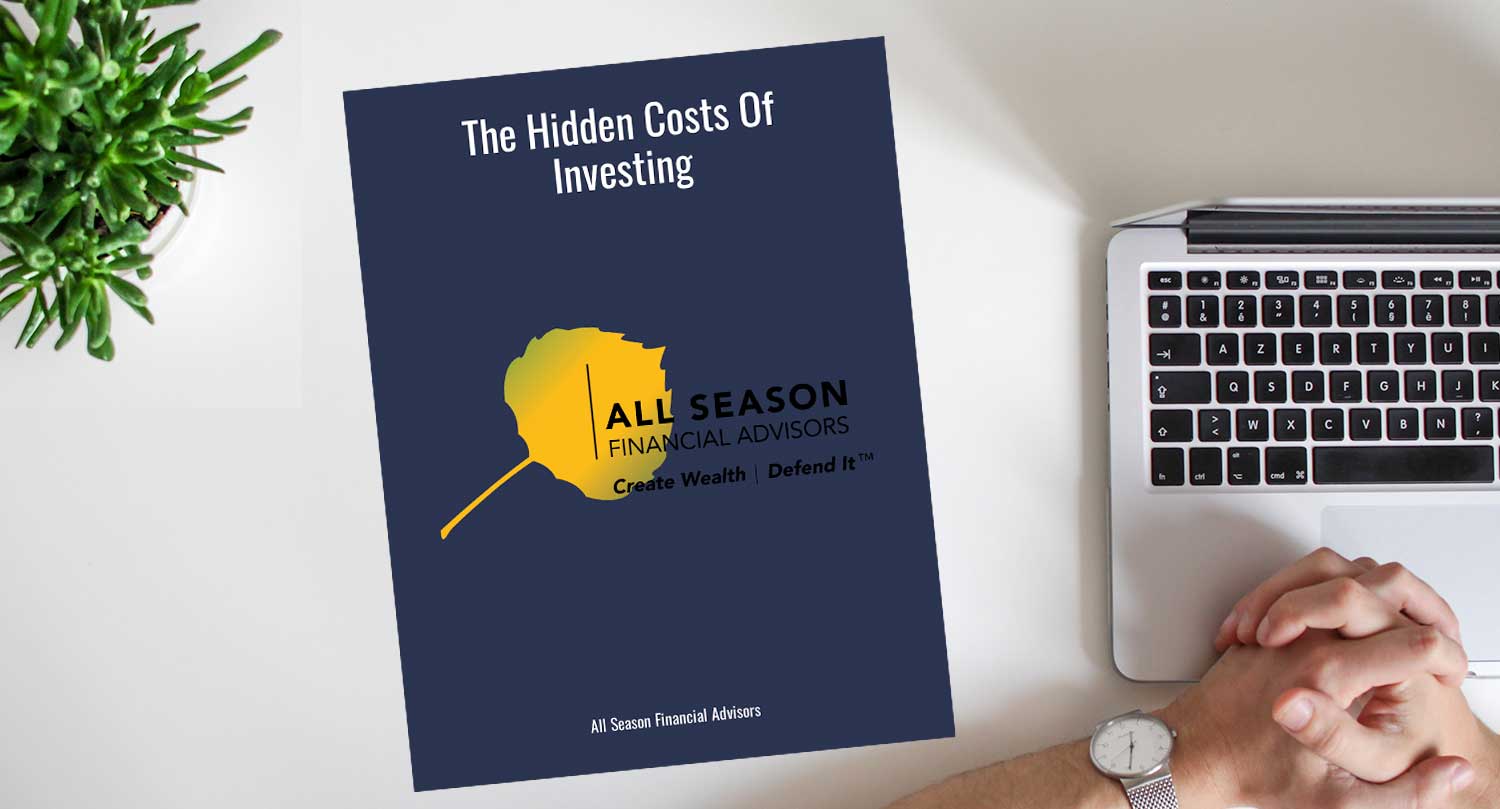November 13, 2023
Create Wealth/ Defend It – According to Morgan Housel
You may not have heard of Morgan Housel, the 33-year-old, best-selling author of Psychology of Money. If not, you’re probably way into fiction, not that there is anything wrong with that. Morgan has recently launched a podcast which I would encourage everyone to follow on your favorite audio streaming service. He is an excellent storyteller, researcher and observer of human financial behavior serving up much needed basic financial literacy to those who are relatively new to the sport. In today’s update, I will lean on one of his more timely posts regarding “Getting Rich vs. Staying Rich” which we sympathize with via our company tag; “Create Wealth / Defend It”. In my long history in this business, this may be one of the most important moments to consider the delicate balance between these two opposing forces.
The Pod
As a shareholder of Spotify (SPOT), I like the service and listen to several podcasts a day. Here’s a link to “The Morgan Housel Podcast” on Spotify but you can search for it by name on any service.
The Morgan Housel Podcast – Getting Rich vs. Staying Rich
What I would like to do for this update is apply several of Morgan’s key points to today’s market environment. The extremes and bifurcated nature of today’s market is something we have not seen since the 70’s and in some cases since the 40’s. We are truly writing new chapters in the economic textbooks (is that a thing anymore?). With history as our guide, investors need to be aware of this situation as extremes such as these tend to mean revert not gradually, buy very suddenly. There are 38 market days remaining in 2023. During these final days, we expect current extremes to maintain a tax loss as selling pushes losing sectors and asset classes down while the creamiest of the cream stays frothy right into 2024. But on January 1st, 2024, the race begins again. The score is 0-0 and investors are free to buy AND sell based on forward looking opportunity and risk as they see it. 38 days.
I’ll frame this discussion with quotes from this episode and weave in current market conditions.
“Past success cannot be relied on to repeat indefinitely.”
Indeed! You have also heard the standard industry disclaimer, “Past performance is no guarantee of future returns”. Not a new concept.
What success is being relied upon in today’s market?
I will give you $1 for every person who believes that the “Magnificent 7” stocks (Facebook, Apple, Amazon, Netflix, Google, Tesla, Nvidia) will underperform the broad US stock market for the next 5 years. I might owe you $5. Said another way, the past success of the Mag 7 is being relied upon indefinitely by nearly all investors, the media, and the Wall Street sales machine. It would be downright foolish, overly bearish and unpatriotic to suggest otherwise.
Other relied upon past success comes from the concept that an investor should simply own the mighty S&P 500 index which is magically up 15% YTD while the rest of the market sits on the sidelines. Why own anything else? Isn’t the S&P an index of 500 stocks? Why diversify? If you can’t beat em, join em?
In 1999, I was the president of the National Association of Active Investment Managers. I stood in front of a conference room of 200+ risk managers and marked the moment in history by opening with a recent quote from Abby Joseph Cohen of Goldman Sachs.
“There has never been a worst time in history to be a risk manager” – Said Abby
We all had a good chuckle three years later when the S&P 500 and Nasdaq fell 52% and 75% respectively in the first of several historic bear markets. Neither of these indices made a new high for 13 years. In 1999, it certainly didn’t seem like it, but we were clearly ending a long period of “Creating Wealth” and moving into a long period of “Defending Wealth”.
Today the S&P 500 is mighty indeed but only so by way of the same Mag 7 stocks that have driven nearly 80% of all gains YTD. Factually the average stock in the US market is up only 2.36% YTD through November 10th according to Bespoke. The largest 100 non-dividend paying stocks are up almost 9% while the 100 highest yielding stocks are down almost as much. Small caps are down over -4% in aggregate YTD.
 Did I mention we have a few extremes it the market today?
Did I mention we have a few extremes it the market today?
In short, this is a moment to consider the balance of risk and relative opportunity. Looking forward, it is safe to say that leadership will change, and money will flow out of overvalued high-risk assets once they begin to experience more downside volatility. And if history repeats, that same money will quickly flow into lower risk assets offering investors safety, dividends, interest and rising prices. This is not a call to stick your money in the mattress and hide. We are simply pointing to obvious extremes and giving all of our clients a better understanding for where we are, and are not, looking to generate returns in 2024.
“Compound interest only works if you give an asset years of growth.”
The benefits of compounding come from long term holds yes, but real compounding leverage is a function of dividend, income or share buyback type reinvestment combined with price growth. If I buy 100 shares of a stock and it goes up, great! But if I reinvest the real cash dividends of that same stock and my 100 shares becomes 150 shares, and it all goes up, then we see compounding in full force! Dividend payers have been hammered in 2023 (see above) due the Federal Reserve’s tightening cycle. Now they are done; now rates can stabilize. Now we are seeing a peak in rates.
Today, wise investors might consider sifting through the wreckage of the high dividend payers keeping in mind that tax loss selling period is upon us. In the last few weeks, we have initiated entry level positions in deeply oversold large cap stocks paying extraordinary dividends in our Multi-Asset Income strategy.
Walgreens (WBA) 9.39% dividend yield trading down 71% from its high in 2015.
3M (MMM) 6.54% dividend yield trading down 54% from its high in 2018.
Verizon (VZ) 7.47% dividend yield trading down 40% from its high in 2020.
We have 24 more names on the buy list but currently waiting for prices to stop falling and the end of tax loss selling. Here’s a hard fact for you. From 1968 to 1982, an investor’s total return from owning the S&P 500 index, came exclusively from dividends and interest. If we are repeating the past to any degree, why would we not reach for higher dividends now that they are dramatically higher and easy to find? For the record, the dividend yield from owning the S&P 500 index is just 1.62% and falling.
Outside of high dividend payers, we have been talking at length recently about the extreme relative underperformance, but real value found today in small caps, mid-caps and internationals, especially emerging markets value. As we slide faster and faster toward recession, Treasury bonds, municipal bonds, investment grade corporate bonds, municipal bonds, REITs and preferred securities should also begin to contribute to the stability and modest growth of any portfolio. Today, these are all just a drag on portfolio performance and a source of frustration for all. Should we chuck them all? Capitulate and buy the S&P 500? Buy even more Tesla? Of course not. Smart investors remain disciplined, diversified and recognize temporary oversold and overbought extremes for what they are. Fear of missing out can be just as strong as fear associated with losses. Both cause bad behavior and this is clearly a time to manage your emotions and lean into fact.
“A financial plan is only useful if it can survive reality.”
Let’s finish with this important concept. Morgan talks about planning for plans to go wrong. How do we do that? How can we plan for something that we can’t anticipate? Enter the magical world of probabilities. Our financial planning software packages, E-Money Advisor and Money Tree, do a respectable job of factoring in things like inflation, spending, income, debt, education costs, planned purchases, etc. Like any planning software, they can project your finances out into the future based on the impact of these variables and give you a picture of your available capital all the way to your death. But of course, this is a moving target. Inflation was 2% forever. Now it’s probably twice that, maybe permanently. That fact alone can dramatically change the math of your projections. Then there are the various assumptions made regarding market rates of return embedded in your assumptions. If market returns are above average, projections look wildly optimistic. If they are below average, the outcomes are not so favorable. What about unforeseen health issues or support for an adult child?
In today’s financial world, I see one enormous factor that has the capacity to disrupt planning assumptions regarding your net worth and that is the value of your real estate. Real estate prices have appreciated more than 50% nationwide in the last four years. This success is not reliable indefinitely – see above. Everyone who is looking at a net worth report is likely to be looking at a wildly inflated number when real estate values are combined with investment account values. While projections do not typically include the value of real estate, it is human nature to factor in “net worth” in our spending and investment decisions.
My reality check message is pretty simple. Be very careful about your decisions and assumptions made with regards to real estate prices and current value of your homes. Examples might include a decision to take out a Home Equity Line of credit while perceived equity is high or buying out a partner in a commercial real estate venture. Perhaps you need the assessed value of a home to come in high in order to close a contract to sell. Today’s real estate prices are highly susceptible to any increase in supply for as long as mortgage rates stay where they are. Any planning done when all markets are experiencing these types of extremes needs a wide buffer to account for the unaccountable.
I’ll leave it there for this week. Please do follow Morgan Housel on his podcast. He’s sensible at a time when very little makes sense.
Regards to all,
Sam Jones

